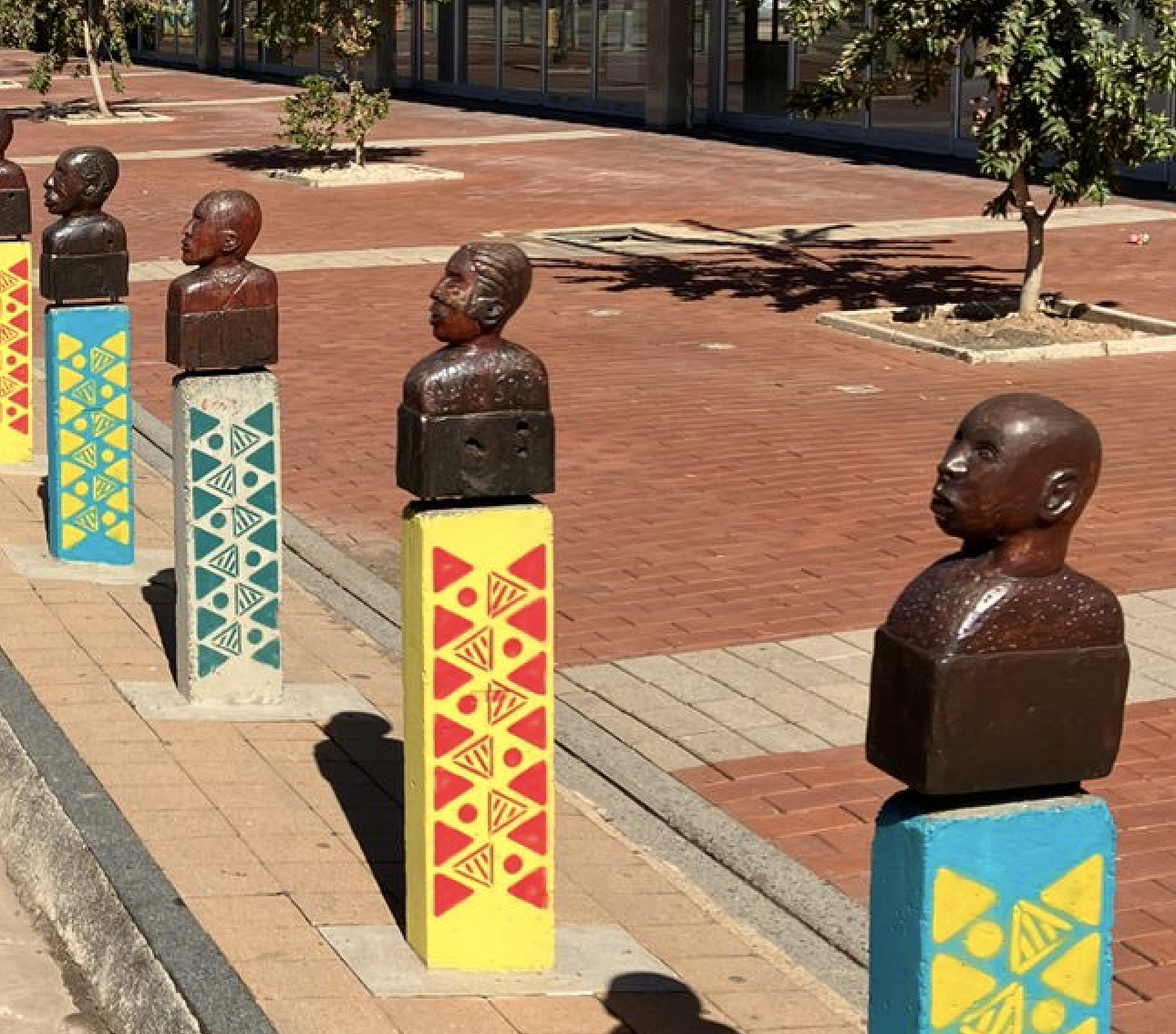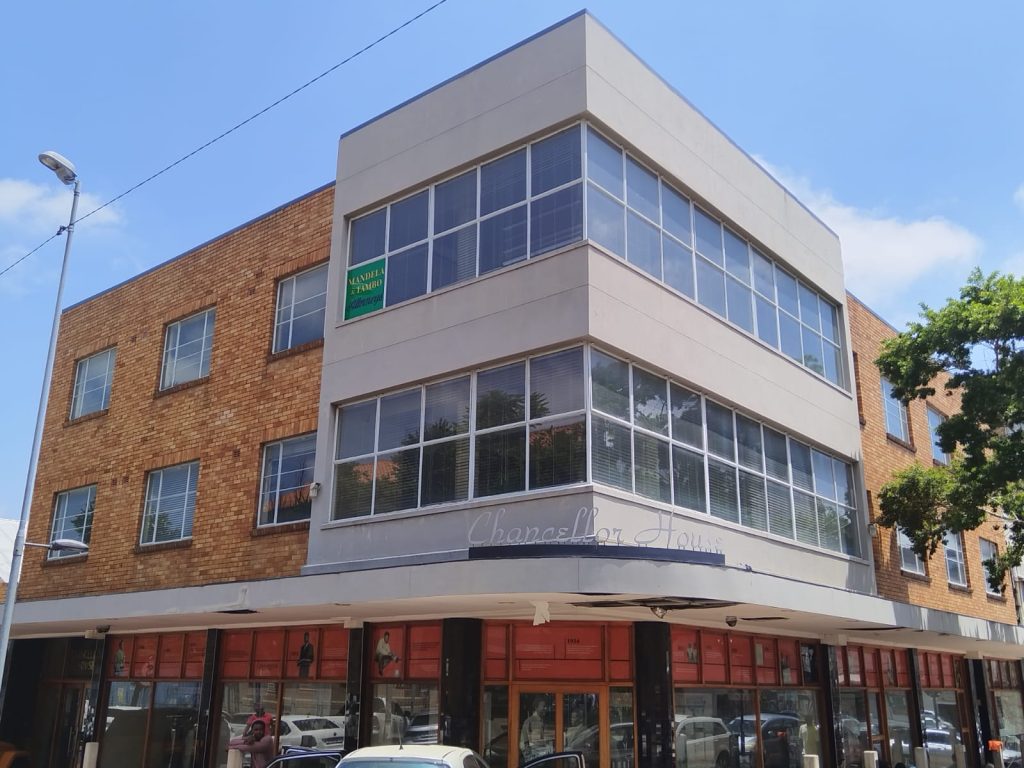
The Newtown heads were the first major art commission in an open public space in the inner city as part of the regeneration of Newtown as a cultural precinct, and played a significant role in establishing the profile of the area as a cultural destination.
The project was commissioned by the design and architectural firm Urban Solutions in 2001, and financed by the Johannesburg Development Agency.
A second phase of the programme involved producing a series of concrete bollards and four concrete sculptures in the Quinn Street precinct in 2003, commissioned from the company FORM.
Due to the significant Muslim population in this part of Newtown/Fordsburg, the brief for this component required that the bollards and sculptures not represent the human form in the context of the Islamic prohibition on figurative representation.

The heads, carved from disused railway sleepers, are drawn from different countries and artistic traditions from across the African continent. Mounted on concrete bollards, the heads have become one of Newtown’s most iconic features; each and every hand-carved sculpture having unique characteristics, with the complete ‘picture’ representing a sea of faces from across the African continent.
Originally 560 were installed, with more heads restored and added in subsequent years. The carved wooden heads reflect the diversity of artistic traditions from across the African continent.
The Newtown heads were the first major art commission in an open public space in the inner city as part of the regeneration of Newtown as a cultural precinct, and played a significant role in establishing the profile of the area as a cultural destination.
The project was commissioned by the design and architectural firm Urban Solutions in 2001, and financed by the Johannesburg Development Agency.
A second phase of the programme involved producing a series of concrete bollards and four concrete sculptures in the Quinn Street precinct in 2003, commissioned from the company FORM.
Due to the significant Muslim population in this part of Newtown/Fordsburg, the brief for this component required that the bollards and sculptures not represent the human form in the context of the Islamic prohibition on figurative representation.


A culmination of research gathered over many years, the Online Johannesburg Heritage Register is being launched on Nelson Mandela Day 18 July 2025.
Among the many heritage sites featured is Chancellor House, the downtown offices of Mandela and Tambo Attorneys in the 1950s. After having been vacant and shuttered for more than a decade, this iconic building is being revived and brought to life once again as offices for the Community Development Department, which oversees the City’s Arts, Culture & Heritage Services.